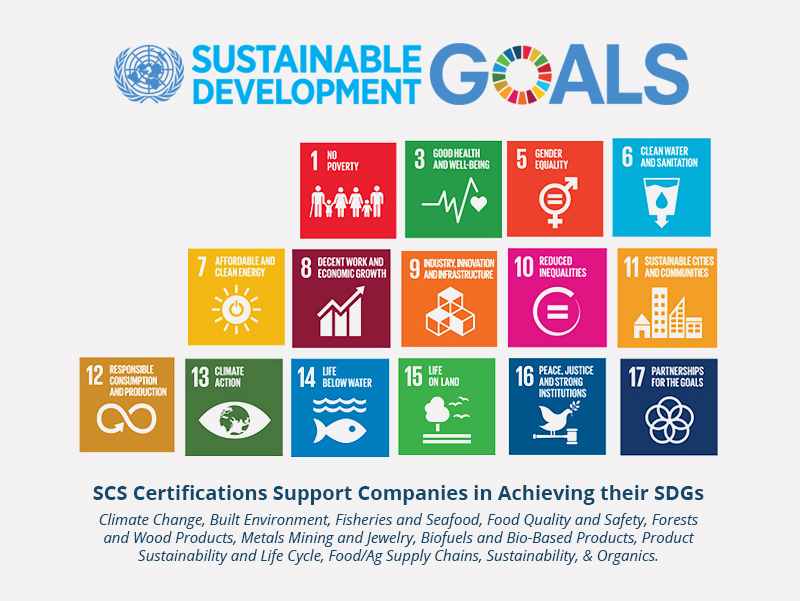Quality Management is Key to Third-Party Certification

Third-party certification is widely recognized as playing an integral role in helping companies demonstrate their environmental, sustainability, and safety achievements to their customers and stakeholders. As a certification body, the question we are most frequently asked is what qualifies us to do this work.
Heading up SCS’ Quality Assurance Team, I liken my team’s services to providing a “safety net” for our company’s reputation. We assure that SCS’ operations run uninterrupted by supporting multiple accreditations in good standing and ensuring that our clients receive the most scientifically rigorous, impartial, efficient, and high-quality assessments from our auditors.
What is not immediately visible to our certification and audit clients is the complex, arduous work happening behind the scenes to safeguard professionalism and the rigor of the services we provide and upon which they depend. In short, a multi-level oversight system is employed to demonstrate our competence and fitness as a certification body.
During any given week, my team gets to work with a diverse array of certification and auditing programs spanning the economy and directly reinforcing the United Nation’s Sustainable Development Goals. These programs range from food and agriculture to natural resource extraction to consumer and commercial product manufacturing. Some notable examples include Forest Stewardship Council, Marine Stewardship Council, Organic, Non-GMO, BIFMA level, Indoor Advantage, FloorScore, SQF, GLOBALG.A.P., the Roundtable on Sustainable Biofuels, the Roundtable on Sustainable Palm Oil, and much more. While vastly different, all these programs operate under the framework of SCS Quality Management System (QMS).

Certifier Accountability
As a certifier, SCS is accountable to multiple standards, and must demonstrate that we provide technically solid, consistent and independent services to our clients. Several ISO standards set international rules for how certification and verification bodies operate, and form the basis of SCS’ Quality Management System, designed and maintained by SCS’ Quality Assurance Team. These standards establish rules around our independence, management of competency for our staff and contractors, internal audits, record keeping, document control, report writing, handling of nonconformities, complaint and appeals resolution, and other aspects of certification process.
Accreditation Body Oversight
Most of the certification scopes offered by SCS require that we maintain accreditation by a national accreditation body, such as American National Standards Institute (ANSI), Accreditation Services International (ASI), or The Joint Accreditation System of Australia and New Zealand (JAS-ANZ). This third-party oversight provides credibility to our independence and technical competency as a certifier, and serves as a risk mitigation tool for our clients when choosing a certification body. Each year, each of our accredited programs undergoes an audit by an accreditation body, during which our offices are visited and staff are interviewed, and a sample of client records is reviewed. In addition, the accreditation bodies accompany our auditors in the field to witness the entire audit process and auditor’s performance in real time.

Scheme Owner Oversight
As another layer of supervision, many scheme owners – i.e., the owners of the standards that define the technical requirements for certification (e.g., GLOBALG.A.P., Bonsucro, ISCC) – have designed their own integrity programs. In this case, it is the scheme owner or their designee who conducts separate assessments of SCS’ operations both at the headquarters and in the field. During field integrity audits, our clients are assessed by the scheme owner’s auditor, whose goal is to see if the deficiencies they identify in the client’s operations are consistent with those identified by SCS’ auditors.

Internal Audits
SCS’ Quality Assurance Team has also instituted a robust internal auditing system whereby each program is assessed once every year against ISO, scheme, and corporate requirements. Auditing the auditors is not an easy task, but at the same time, they are the most grateful recipients of constructive feedback as, like no other, they understand the value of continuous improvement. Internal audits serve several functions:
- Assurance: As internal auditors, we objectively evaluate program’s operations to assess how meticulously our own procedures are followed, how we comply with accreditation and scheme requirements, and to identify any existing or potential issues.
- Catalyst for gaining efficiencies: SCS’ service offerings are increasingly diverse, and as someone who is able to assess the operations of all programs in the company, internal auditors serve as a one-stop-shop for best practices.
- Risk mitigation: Internal auditors flag areas of risk and suggest solutions for risk mitigation.
Being an auditor in the third-party voluntary sustainability certification arena requires that we embrace being audited. It is through the rigorous independent oversight that we can assure our customers that our services are credible, professional, and technically competent.
Diana Kirsanova Phillips is SCS Global Services’ Director of Quality Assurance. SCS provides third-party certification for companies and organizations around the world. For more information, check out www.scsglobalservices.com, or contact Diana at [email protected], 1.510.452.9089.
For Blog Inquires or Comments Contact us Today.

